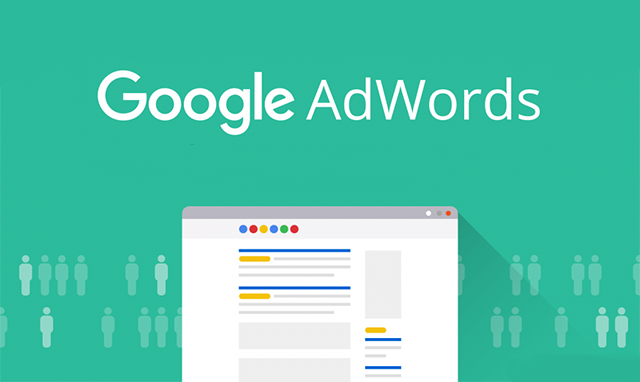
6 Common Google Adwords Mistakes
Google “SEO vs. PPC” and you’ll see over 1.2 million results and a lot of contradictory opinions. The truth is that both search engine optimization and pay-per-click advertising, if effectively leveraged, will put your business in front of prospective customers. Only you can determine which is better for your business, or whether a combination of the two is your best bet.
Some marketers contend that, especially for smaller businesses which are new to online marketing, PPC is the better choice. Among these is Adam Stetzer, who argues in favor of PPC:
“Agencies should steer inexperienced customers into PPC first because it is most similar to Yellow Page advertising. Furthermore, 72% of marketers that use PPC plan to increase their PPC budgets, which demonstrates it is generally successful. PPC allows customers to secure new business rapidly. Trust will develop over time, and new products [like SEO] can then be proposed.”
The truth is that both SEO and PPC can work for any business, especially if they get the expert help to make their campaigns a success. That’s because there’s another truth: neither SEO nor PPC is a DIY project.
According to Google, businesses on average make $2 for every $1 they spend on AdWords campaigns. The operative phrase there is “on average.” Some businesses achieve a much higher ROI with AdWords, and some lose money. Said differently, being successful with AdWords means fully understanding how pay-per-click works, and how to avoid rookie mistakes which put your investment at risk. Below are six common Google AdWords mistakes and how to avoid them.
1. Using the Wrong Keywords
When you choose keywords, you’re predicting what prospective customers will type into Google when looking for businesses like yours or products you sell. That sounds easy, but it’s easy to go wrong. For example, let’s say your business sells used home appliances in Tampa, Florida. If you use keywords like “appliances,” or “appliances Tampa,” your ad will be displayed to a lot of people, but many of them are looking for new appliances or commercial (not home) appliances. If any of those people click on your ad, you’re losing money.
The most dangerous word when it comes to PPC campaigns is “assume.” Rather than making assumptions about the best keywords for your business, do your research. You can get help from tools like Google’s AdWords Keyword Tool or WordStream (both are free).
2. Not Being Specific: Negative Keywords
When you choose your keywords, AdWords will automatically default to “broad match.” This means your ad will appear when people type variations of your keywords, including using synonyms or typing them in a different order. You need to specify more precisely what constitutes a match. One way to do that is by using negative keywords.
Just as keywords tell AdWords what people you want to see your ad, negative keywords specify what people you don’t want to see your ad. Going back to the example of the used home appliance business, you can more effectively target the right people by using the negative keywords, “new appliances” and “commercial appliances.”
3. Neglecting Mobile
Most internet searches now take place on mobile devices. You need to accommodate these searches with ads that work on the smaller screens of smartphones and tablets. First, you need to let AdWords know that you want to use their mobile search feature. You then need to ensure your ads work on a smaller mobile footprint. For example, you might want to shorten keyword phrases and truncate your ad copy. Finally, you can include a click-to-call extension for your mobile ads, which will automatically push a call to your business when someone clicks on your ad.
4. Displaying Ads at the Wrong Times
Do you really want people contacting your business when it’s closed? After all, if a lot of prospective customers call only to reach voicemail, you could be losing business. You can tell AdWords when to display your ads (and when not to display them) using Ad Scheduling. To be most effective, turn off your ads when no one’s there, or during extremely busy times when your business is less able to handle incoming calls.
5. Forgetting to Use Bid Adjustments
One of the benefits of PPC advertising is the ability to limit your spending to a predetermined amount. You can tell AdWords how much you’re willing to spend, in other words. AdWords will then limit your ad’s exposure accordingly (for example, your ad might display every 3rd or 4th time your keywords are entered).
Bid adjustments go one step further. You can tell AdWords the specific circumstances under which you want your ad to be displayed, while still keeping within your budget. For example, you might give preference to mobile searches, or to searches which take place in certain geographical locations (like those closer to your brick and mortar store), or at certain times of the day or days of the week.
6. Omitting Ad Extensions
Ad extensions in AdWords let you augment your ads with key information, things like business phone number, address, or links to specific web pages. Take advantage of ad extensions because they provide useful information to prospective customers. In addition, they give your ad more real estate on search pages and generally improve click-through rates for your ad.
Google Adwords Mistakes and Improve Your Marketing Efforts
Doing PPC advertising right is a challenge, but totally doable. Like everything else about your business, success means doing your homework, being persistent, and growing your knowledge base and experience every day. That’s as true about marketing as it is about designing a website that works for your business. Paid advertising can help boost sales and grow your business, just be sure to avoid silly mistakes.
To learn more about Google Adwords, Magento development and how they both work together, contact us to learn more.